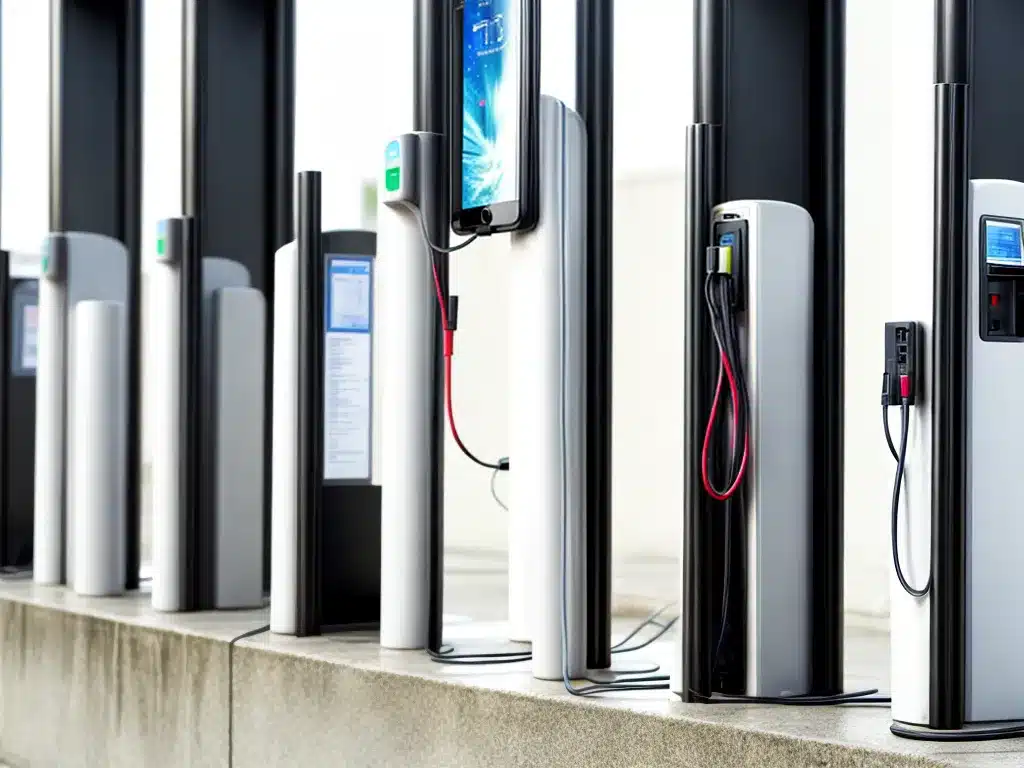I often find myself needing to charge my phone when I’m out and about. Public USB charging stations in cafes, airports, and other locations provide a convenient way to get a quick power boost. However, I’ve started hearing concerning reports about the security risks associated with using these chargers. In this article, I’ll provide an in-depth look at the potential dangers of using public USB charging stations.
What Are Public USB Charging Stations?
Public USB charging stations are wall-mounted units that contain multiple USB ports. They allow anyone nearby to plug in and charge their mobile devices. These chargers are increasingly common in public places like:
- Airports
- Hotels
- Cafes
- Libraries
- Malls
- Universities
The appeal is obvious – they offer a convenient way to charge your phone, tablet, or other gadget while out and about. However, there are some worrisome security and privacy risks associated with plugging your device into a public USB port.
Malware Infection Risks
One major concern with public USB chargers is the risk of contracting some kind of malware. Malware refers to malicious software programs like viruses, spyware, and ransomeware. Cybercriminals can load malware onto charging stations in public locations to infect unsuspecting users’ devices.
They do this by manipulating the chargers and turning the USB ports into makeshift data connections. When you plug your phone or tablet into an infected public charger, you could unknowingly download malware onto your device. Depending on the type, this malware could:
- Steal your personal data and passwords
- Encrypt your files in a ransomware scheme
- Track your online activities through spyware
- Brick your device by corrupting the system
There have been several high-profile examples of malware being distributed through public USB chargers:
-
At the 2022 DEF CON hacking conference, security researchers revealed malware pre-installed on wall chargers at the event venue.
-
In 2016, a researcher found chargers infected with ransomware at multiple locations around San Francisco.
-
That same year, Los Angeles County authorities warned about ransomware on charging stations in at least eight locations.
These examples illustrate that the threat of catching malware from a public USB charger is very real.
Data Theft and Privacy Risks
Beyond malware, public USB charging ports also pose a risk of data theft. Hackers can potentially access everything on your phone through a malicious charging station, including:
- Contacts
- Photos
- Emails
- Financial information
- Other sensitive data
The ports allow data transfer in both directions. So if a hacker has rigged the public charger, they could secretly download private files from your phone while it charges.
Researchers have demonstrated that it’s possible to build a charging station that doubles as a remote keylogger. This means it could track everything you type on your phone while plugged in, like passwords and credit card numbers.
In 2015, a researcher named Samy Kamkar revealed a clever malicious charger he built called an “USB WallJak.” It could rapidly install software on iOS or Android devices to extract data.
These risks illustrate why I’m wary of plugging my phone into any random public USB charging station. My private information could be compromised.
Safety Best Practices
So how can you charge your phone on the go while avoiding public USB charging risks? Here are some tips:
-
Use AC power outlets instead of USB whenever possible. That avoids any data connection.
-
Carry a portable power bank as an alternative to public chargers. Make sure to charge it at home.
-
Use USB condoms. These devices block data transfer while allowing power flow.
-
Avoid charging overnight. Only plug in long enough to get the minimum charge you need.
-
Examine ports carefully. Look for anything unusual inserted in the ports.
-
Consider cyber insurance. Some policies cover identity theft stemming from a public USB charger.
-
Keep phones locked while charging. Don’t leave phones unattended.
With some caution, you can reduce the security and privacy risks associated with using public USB charging stations. But it’s impossible to eliminate the risks entirely.
The Bottom Line
Public USB charging stations undoubtedly offer a convenient way to quickly get your phone powered up. However, the risks of malware infection or data theft associated with using them means I’m very wary of plugging my own devices into any stranger’s charger. It’s difficult to verify whether any given public USB port has been tampered with. One accidental malware infection could lead to significant headaches. That’s why I make an effort to mainly use my own power bank or AC outlet whenever possible. If I do use a public station, I take precautions like examining the equipment, keeping my phone locked, and disconnecting promptly after getting a quick charge. Staying vigilant about the security risks allows me to balance convenience and caution when using public USB charging stations.












